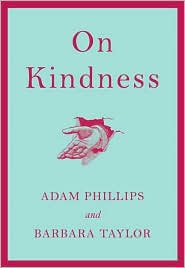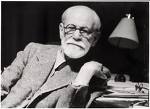I read Louise Glück’s poem “Gratitude” for the first time 35 years ago and my initial reaction is still fresh: I’d been exposed.
Gratitude
Do not think I am not grateful for your small
kindness to me.
I like small kindnesses.
In fact I actually prefer them to the more
substantial kindness, that is always eying you
like a large animal on a rug,
until your whole life reduces
to nothing but waking up morning after morning
cramped, and the bright sun shining on its tusks.
The speaker ingeniously sends at least three messages at once. First, “I don’t go for conventional expressions of gratitude, but that doesn’t mean I don’t appreciate what you’ve done for me.” Second, “However, even these small acts of kindness agitate me, so,” third, “I’m warning you not to try anything more ambitious.” Here, kindness is perceived as a camouflaged demand, its motive perhaps hidden from the giver of favors. The giver’s unknowingness may be what most irritates the speaker.
Both the suspicion of kindness and the discomfort of exposure are familiar to most of us. But why do we have issues with kindness in the first place – with this capability Marcus Aurelius called “mankind’s greatest delight”?
Insofar as the speaker won’t say “thank you” and let it go at that, “Gratitude” dramatizes a very particular act of unkindness paid in the currency of its sharp tone to a potentially sinister beast. But does the speaker have obscure motives, too?
 I thought of “Gratitude” while reading On Kindness by psychoanalyst Adam Phillips and historian Barbara Taylor. By book’s end, an additional facet had emerged in my sense of the poem.
I thought of “Gratitude” while reading On Kindness by psychoanalyst Adam Phillips and historian Barbara Taylor. By book’s end, an additional facet had emerged in my sense of the poem.
On Kindness argues that “the kind life – the life lived in instinctive sympathetic identification with the vulnerabilities and attractions of others – is the life we are more inclined to live, and indeed is the one we are often living without letting ourselves know that this is what we are doing … Kindness — not sexuality, not violence, not money – has become our forbidden pleasure … Once we allow it as a pleasure, it makes us more porous, less insulated and separated from others.”
This prescription may sound like sentimentalism. But after stating its thesis, On Kindness goes on to examine why it is so difficult for us to “allow it as a pleasure” and to enact kindnesses that don’t turn into large animals with tusks. As the authors say, “Sentimentality is cruelty by other means.” (So, if the poem’s speaker has detected sentimentality in the small kindness, the sharp tone may be a defense against the embedded cruelty. On the other hand, the speaker may simply be a bad sport.)
 Drawing mainly on Freud and Winnicott, Phillips focuses largely on early childhood experiences of kindness. As infants we ensure our safety and satisfy our needs by pleasing and showing kindness to (ie., bribing) parents, thus reinforcing our dependence. But as we grow up, a too radical independence may entail a rejection of kindness stained with the pain of dependency. Phillips puts it this way:
Drawing mainly on Freud and Winnicott, Phillips focuses largely on early childhood experiences of kindness. As infants we ensure our safety and satisfy our needs by pleasing and showing kindness to (ie., bribing) parents, thus reinforcing our dependence. But as we grow up, a too radical independence may entail a rejection of kindness stained with the pain of dependency. Phillips puts it this way:
“On the one hand the child has to be weaned from her tendency toward self-reliance, from her belief that she can satisfy herself, and that everything she needs comes from herself … On the other hand, the child has to be weaned from her absolute dependence on her mother for her survival and well-being. The child, and the adult she will become, has to renounce her wishful world of fantasy in order to be nourished by reality … the acknowledgement that other people have what we need and that their well-being matters to us.”
Kindnesses are extended throughout the struggle – along with a series of disgusts. The frustrated child hates the parent. But later, if we’ve survived childhood more or less intact, we may find “genuine kindness … can accommodate hostility and aggression … hatred that is lived through without severing the relationship.”
Sometimes the situation is much more difficult. “Too much kindness is a sabotour of development, of fully formed independence,” says Phillips. But also, “Parents who recruit the child to save themselves, who punish the child when he cannot make the world a good place for them, may destroy the child’s belief in kindness.”
Taylor’s contribution deals with the philosophical and social histories of kindness, from the Stoics through Augustine and the Reformation to Malthus, where kindness as “enlightened self-interest” takes hold as we know it today – with the “radical benevolence” of Rousseau as its antidote. Unfortunately, one must abide cant like “Capitalism is no system for the kindhearted” and “Free markets erode the societies that harbor them,” phrasing unworthy of an otherwise stimulating set of five speculating essays.
 I’ll read anything Adam Phillips writes. The synopses above fail to capture his ability to express the feel of a mind stepping around the traps it sets for itself. “Whatever else it is,” he writes, “psychoanalysis is an account of how and why modern people are so frightened of each other. What Freud called our defenses are the ways we protect ourselves from our desires, which are also our relations with others.”
I’ll read anything Adam Phillips writes. The synopses above fail to capture his ability to express the feel of a mind stepping around the traps it sets for itself. “Whatever else it is,” he writes, “psychoanalysis is an account of how and why modern people are so frightened of each other. What Freud called our defenses are the ways we protect ourselves from our desires, which are also our relations with others.”
That brings me back to “Gratitude.” If it is true that inside my aggressiveness and active neglect lives a desire for intimacy, then the one I protect myself from is the one I desire. The authors write, “There is not going to be any consensus inside us about what we want and what we need; there is only going to be a coexistence of competing claims, the conflict of rival pleasures.” I may be wary of your small and large kindnesses, and my wariness may be warranted – but I’m also in danger of missing another opportunity for intimacy. Kindness is a demand in that it expresses a desire, but it’s also an offer.
I think this is the pleasure of “Gratitude” – that familiar experience of intimacy hanging in the balance. Louise Glück’s poem embodies a wish for intimacy with its reader by precluding the potential for too much kindness. As Phillips puts it, “Kindness should not be an obstacle to intimacy.”
One could say On Kindness embodies the type of kindness it recommends. If it were too kind to us, it would formulate the steps to achieving the right kind of kindness. Instead, it makes us work and wonder.
As Phillips says, “Unkindness, lack of regard and of consideration, is a precondition for what Freud refers to [in ‘On the Universal Tendency to Debasement in the Sphere of Love,’ 1912] as ‘psychical potency’ in love.”
Or, as Nick Lowe puts it —
“Cruel to be kind, in the right measure,
Cruel to be kind, it’s a very good sign,
Cruel to be kind, means that I love you,
Baby (you gotta be cruel)
You gotta be cruel to be kind”
[Published by Farrar, Straus & Giroux on June 3, 2008, 114 pages, $20.00 hardcover]
kindness
I don’t know about all this, Ron. Kindness certainly does not mean indulgence, but I do think it’s closer to caritas than what I’m hearing here. And in my opinion it is just about the most important thing in the world, or more precisely, it is the most important thing in relationships among all living creatures.
Nothing against caritas
I don’t think Phillips & Taylor are disparaging caritas at all but rather adding nuance to our thinking about “kindness.” Isn’t “tough love” a viable form of kindness? As for the Gluck poem, Ron’s analysis opens up the poem for me, so thanks for that. The topic of kindness reminds me of some recent studies of primate behavior and how primates brought up in less harsh environments tend to care for each other more consistently. So Ron, maybe Barbara Taylor has a point about capitalism’s heartlessness. Not that I would recommend the alternate hardships and repressions of socialism.
Kindness
I do think that tough love is sometimes necessary, but fairly often, I think, it is exercised because real kindness is harder–requiring time, effort, and an open and vulnerable heart. I just don’t think it’s always clear when one response is indicated over another. That is, there are times when, no matter who has said what about what should be one’s response, no one has said anything that helps us to decide.
Kindness and Politics
I agree wholeheartedly that Adam Phillips’ writings on psychology are first-rate. “There is not going to be any consensus inside us …” tells us that sometimes our kindnesses may be desperate and sometimes we may be able to see through out own feeble strategies. We can choose. To say that Phillips is insensitive to “caritas” is just weird. He’s just saying that our kindness-giving is a complex operation, and made even more densely problematic by history. But here’s what I don’t get: Why does Phillips, who can see so clearly how conflicted our psyches are, think our social structures (politics etc) don’t have the same built-in features? Why the distaste for capitalism as if it were more cruel than socialism? Are his country’s National Health policies “kinder” to people, even if the quality suffers?